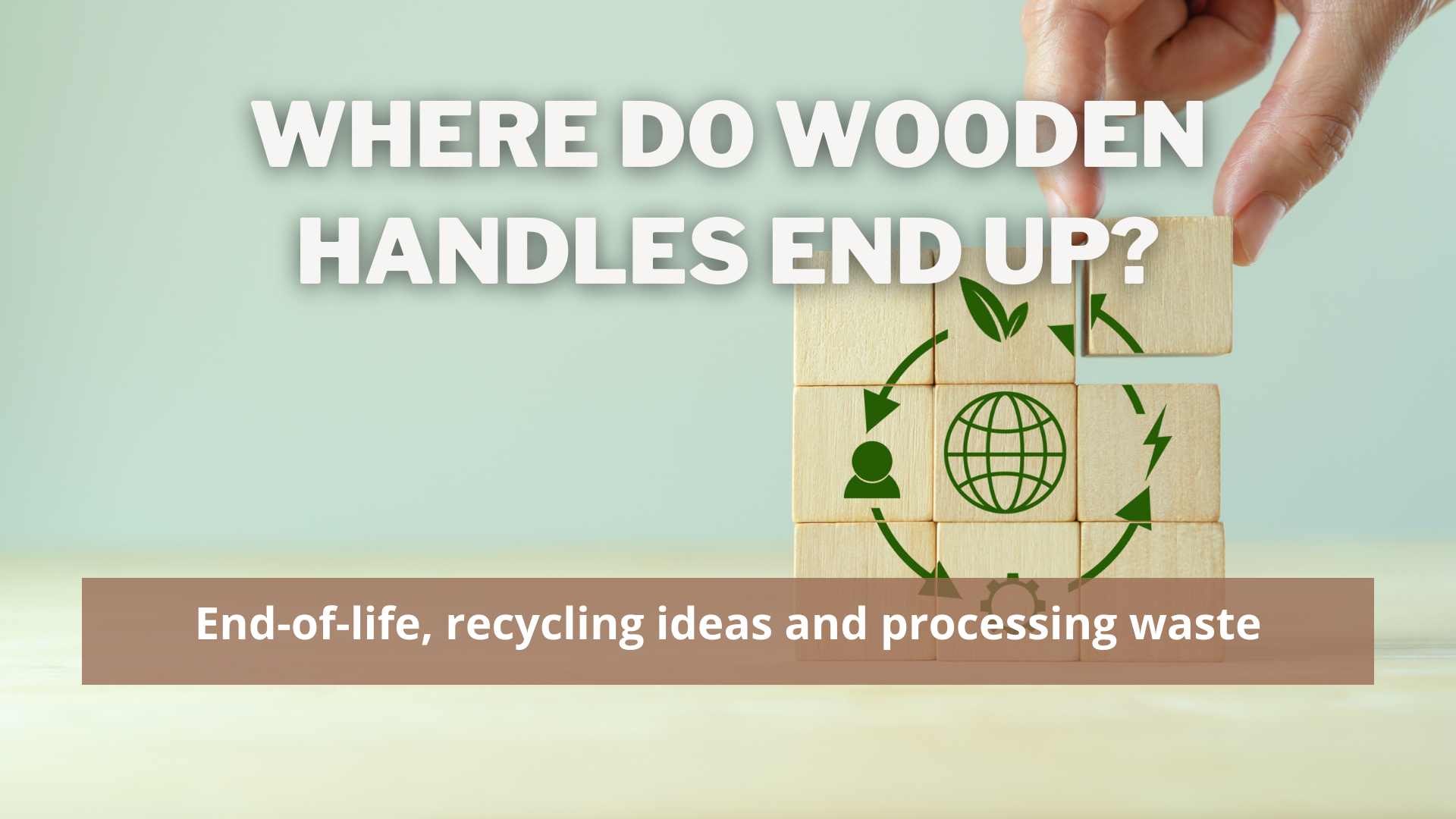Find out what happens to wooden tool handles once they are used: end-of-life, recycling ideas and processing waste
“Circular economy” is a well-known expression by each and every company. It is noteworthy how consumers’ attention to the product life cycle has grown exponentially. Consequently, it has become a central element in consumers’ purchasing decisions (and, as a result, in companies’ corporate policies).
At Foppoli Bramin, we have embraced this change of perspective from the outset. Wood is a material that lends itself very well in the matter of sustainability and circularity. In addition, we believe it is important that individual companies set a good example and make an effort to limit the environmental impact of this industry, even by launching a debate on the end of life of products, but also on the recovery and use of processing waste.
Wooden handles, where does the processing waste go?
Awareness of production methods has led many companies to review their processes for the better. Foppoli Bramin is an example in this scenario: we have in fact implemented a production cycle that allows for the total reuse of processing waste. These are transformed into natural fuel, with a high calorific value and free of harmful substances such as resins, glues and paints, reflecting the company’s attention to the health of the environment and people.
Also, the Region of Lombardy recognised our efforts, awarding us with the “Artisan Excellence” label!
The end-of-life phase of wooden handles and their recycling
Wooden handles reach their end of life in two ways:
When it is no longer possible to use them safely
When buying a new wooden handle or tool
In the latter case, we can consider recycling in order to reduce waste and for the sake of the environment. We wrote an entire article on recycling options for wooden handles, here are some of them:
Recycling in horticulture: you may use your old wooden handles as braces for plants and climbers
Rustic furniture: with a little creativity, wooden stems can become plant carriers or furnishings for your outdoors
Sports equipment: longer wooden handles can become fine walking sticks for your walk in the woods or in the mountains
The end-of-life phase of wooden handles and the disposal of them
When wooden handles can no longer be used or recycled, it is time to discard them. Do it properly, though!
Wood is a natural and organic material, but do not forget that wooden handles are still treated or even painted. The ecological services of each city remove wooden handles either as wood waste – which is shredded and reused to create chipboard panels or transformed into biomass for energy production – or as bulky waste. Please always inquire about the regulations of your Municipality before discarding used wooden handles!
The right choice that lasts over time
Remember that choosing quality wooden handles is a sustainable action that brings long-term benefits. The durability of a well-made wooden handle reduces the need for frequent replacement, decreasing the amount of waste generated and the consumption of resources.
Quality goes hand in hand with sustainability. A wooden handle made of carefully selected and processed material will last for many years, therefore reducing its impact on the environment.

